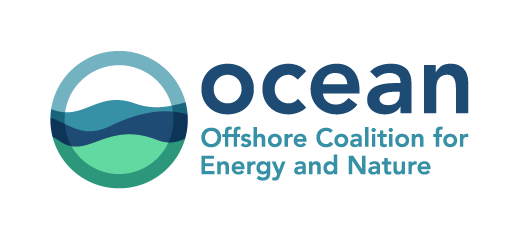Data
Our Aim
We are already faced with the double climate and biodiversity crises and the need to act quickly to develop offshore wind energy. At the same time, we need to safeguard healthy marine ecosystems, for their own sake, for their capacity to support climate mitigation as well as other essential ecosystem services.
Data is essential for planning ahead and finding suitable locations for both marine protected areas and energy infrastructure as well as all the other uses of the sea. Data is also the basis for sound, ecosystem-based Marine Spatial Planning (MSP)[1], which relies, among others, on environmental, geological, socio-economic and technical data. Readily available and accessible environmental data can support permitting and space allocation processes by providing a better understanding of the environmental conditions of the sea, the possible negative effects of human uses of the seas and the necessary effective mitigation and restoration measures to adopt.
A concerted effort from all levels of ocean governance and all marine stakeholders is required to make data available and accessible. Environmental data collection needs to be standardised, its storage centralised, to be made available across borders and without obstacles to sharing.
Members of OCEaN recognise the value of accessible and comparable datasets and will work to support and contribute to existing tools and approaches for data collection and sharing, and where necessary suggest new ones. Specifically, OCEaN will consider how the collection of environmental, socio-economic data should be standardised and shared among maritime stakeholders and governmental institutions. OCEaN will do so by pursuing the following goals:
- OCEaN will assess current environmental data collection protocols across European sea basins. It will develop and commit clear recommendations to be applied when sourcing and/or commissioning data collection, e.g. during permitting procedures, surveys, monitoring programmes and other research studies. OCEaN recognises the differences in national permitting procedures and encourages moving towards an EU-wide standardisation of data collection and sharing as well as the alignment of permitting procedures, while allowing for some site-specific adjustments, where necessary. These standards should be regularly updated to reflect new learnings and technologies. When commissioning studies, the terms of reference should be informed by existing knowledge and data sets as well as the advice of external experts in impact assessment, research, and modelling. OCEaN aims to establish such practices within its own community.
- OCEaN encourages national governments to centralise future data collection and support data accessibility, e.g. by actively promoting public-private partnerships for data collection, in particular for long-term and large-scale assessments and monitoring. Governments should coordinate with neighbouring countries to enshrine the principle of publishing all relevant data under a standardised open data license. OCEaN will support these efforts by jointly working towards understanding the availability and usability of existing data among its members per species and sea basin area as well as identifying data gaps per species and sea basin.
- OCEaN also recognises the need to remove obstacles to sharing existing data, and will jointly identify these and find out how they can be overcome, with a long-term view of setting up a data sharing community that can support the realisation of its goals and contribute to existing data sharing platforms, such as EMODnet.
- Lastly, OCEaN recognises the need to support better spatial decision-making and to that end will aim to understand the applications of Wildlife Sensitivity Maps, assess how to realise these and promote and support their use wherever meaningful and useful. It will do so in collaboration with suitable actors, including the European Environmental Agency (EEA) and its own members, as a basis to support MSP processes at EU and national level.
[1] Bergström, L. et al., 2019. Cumulative Impact Assessment for Maritime Spatial Planning in the Baltic Sea Region. Pan Baltic Scope
Download the Case Study on marine environmental data monitoring for nature-friendly offshore wind
